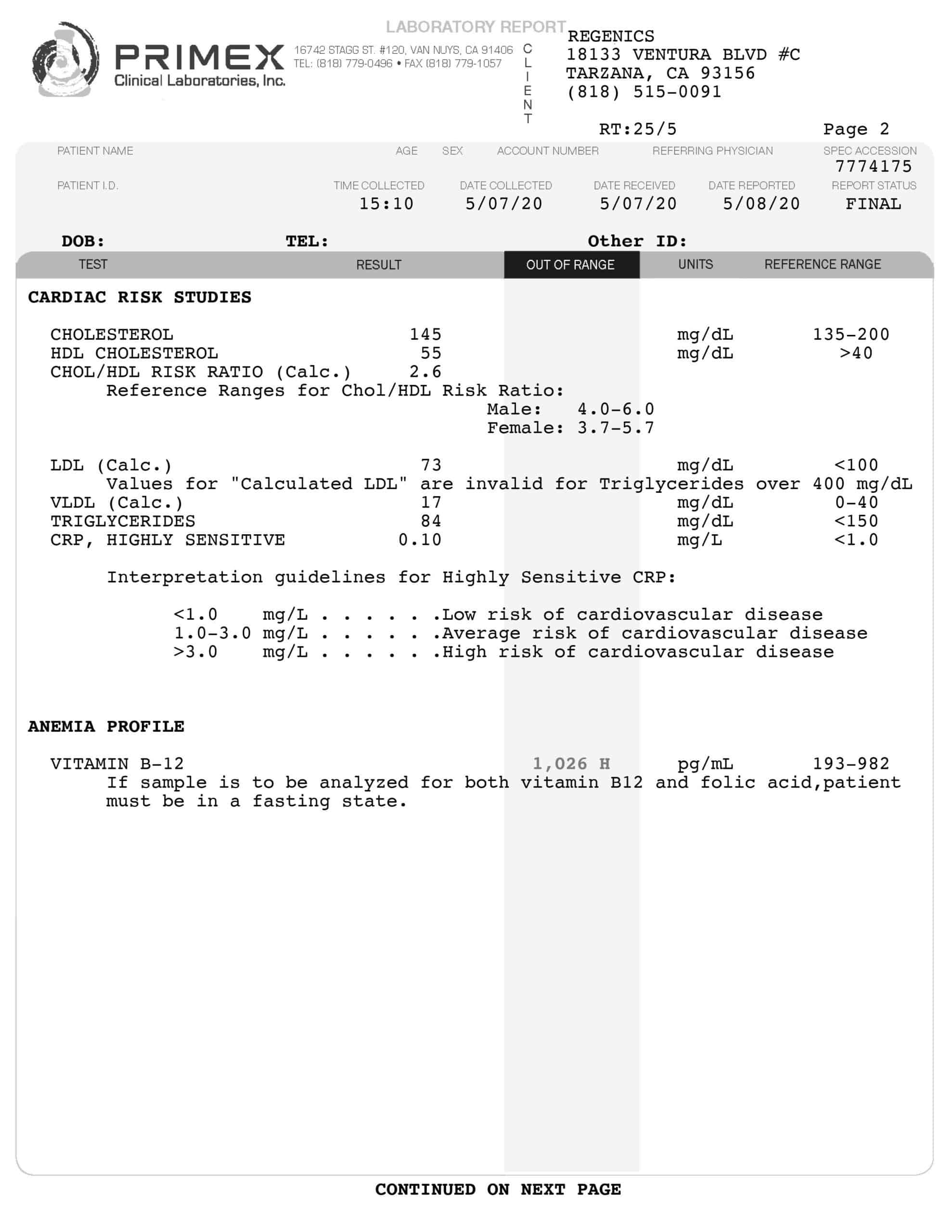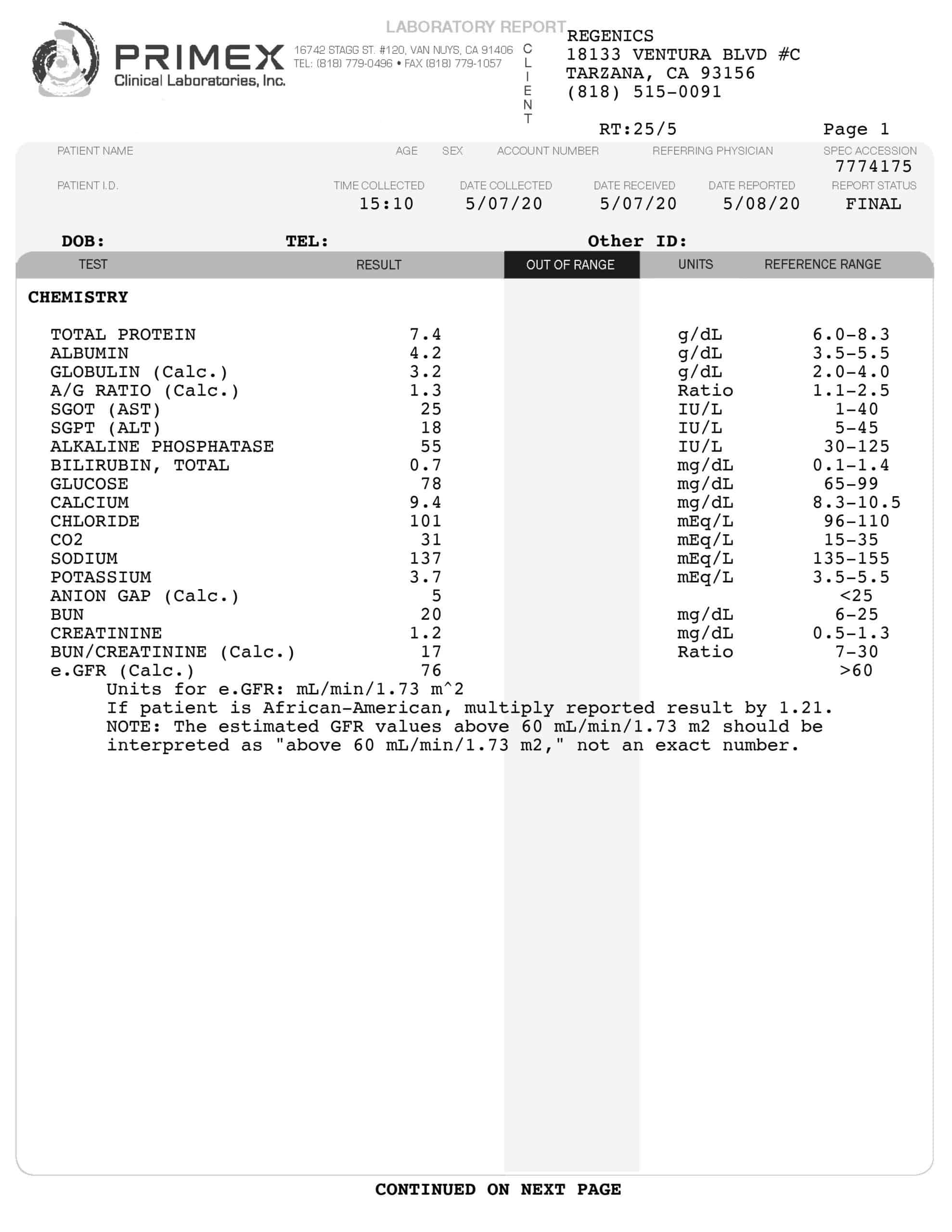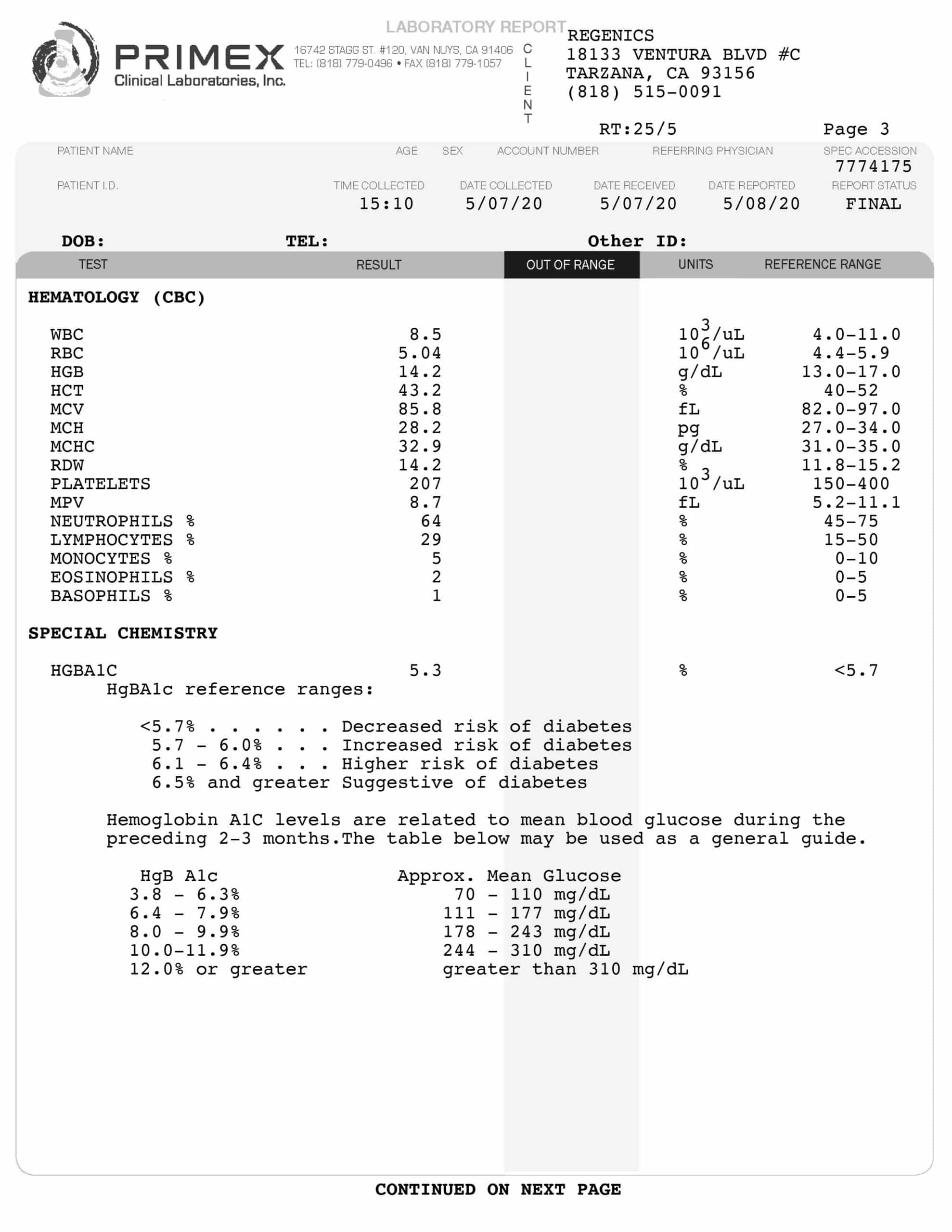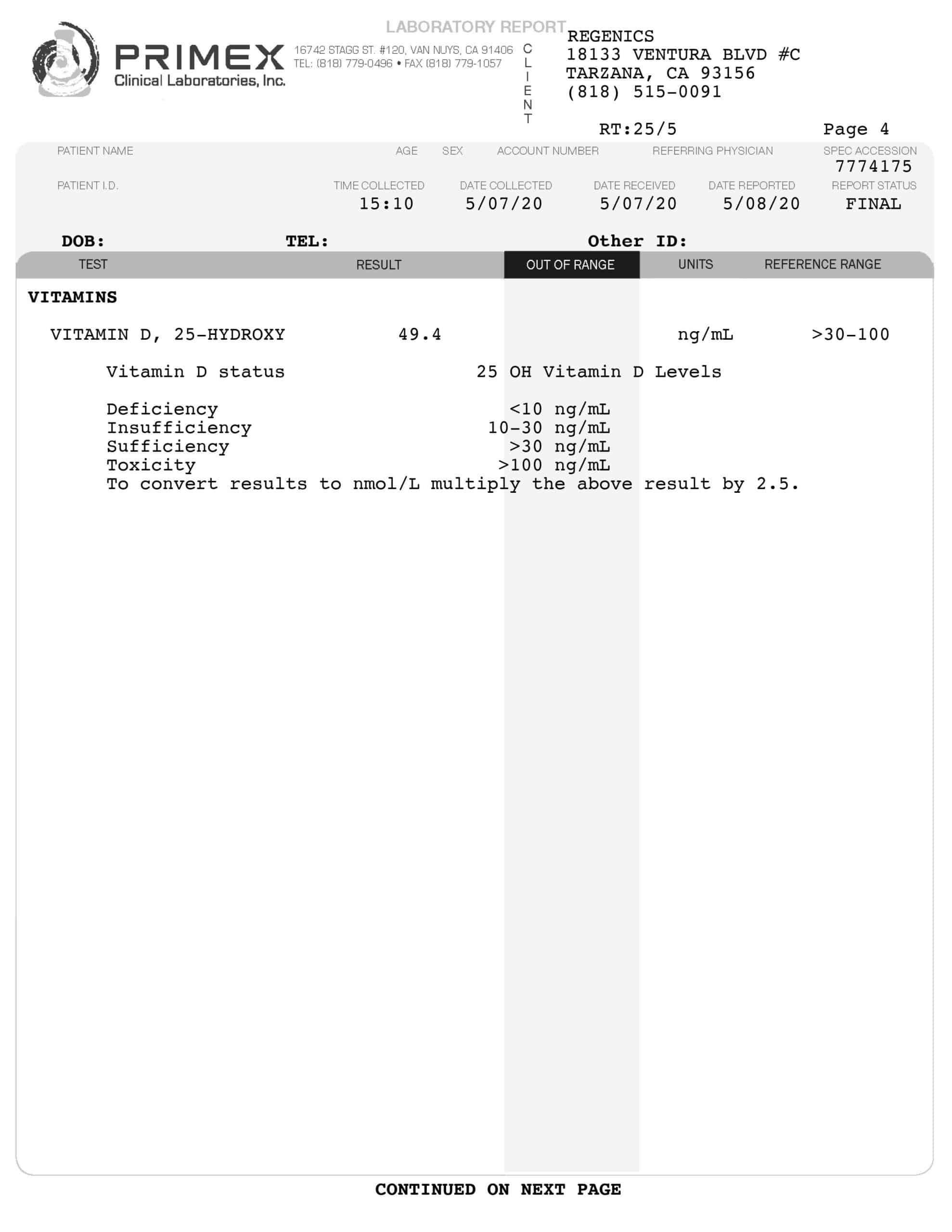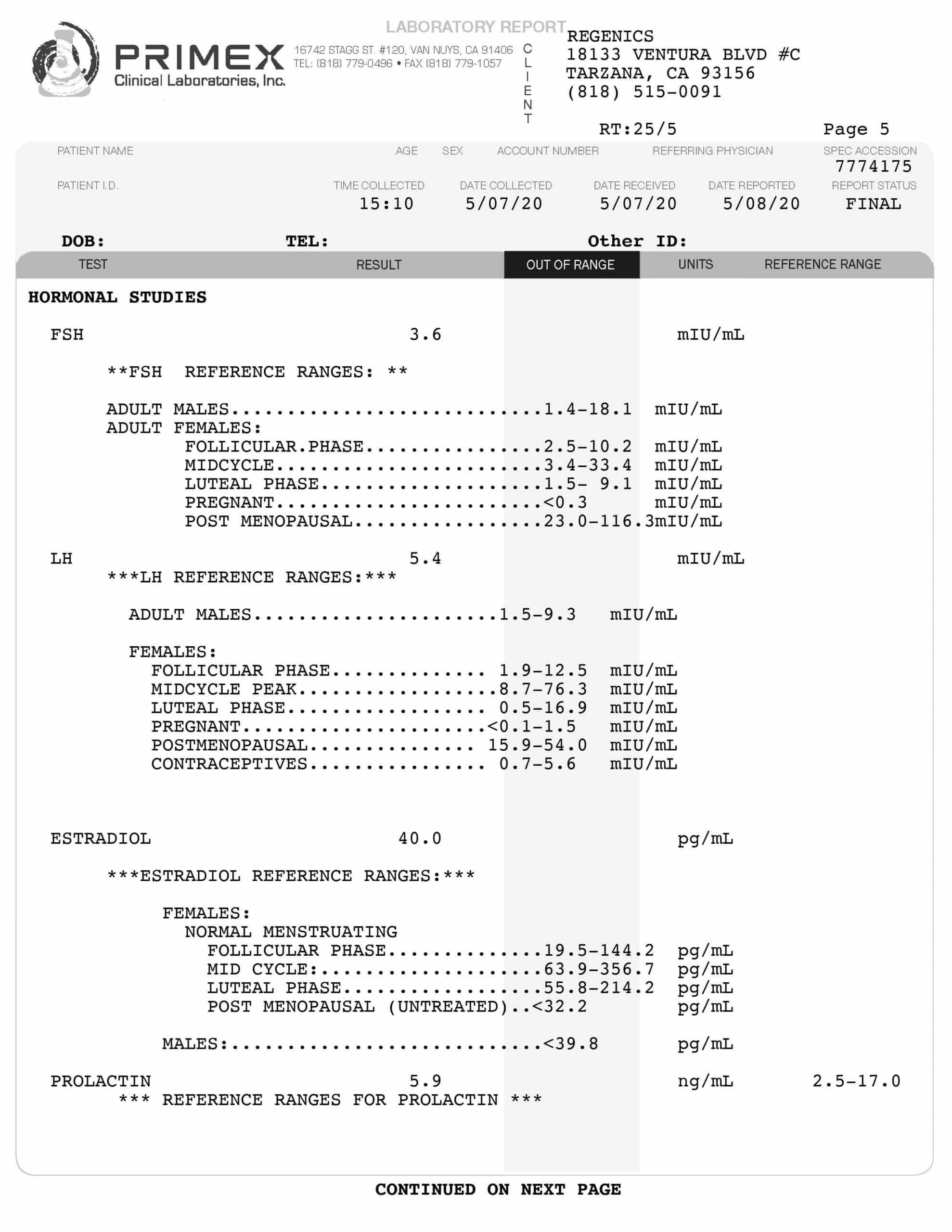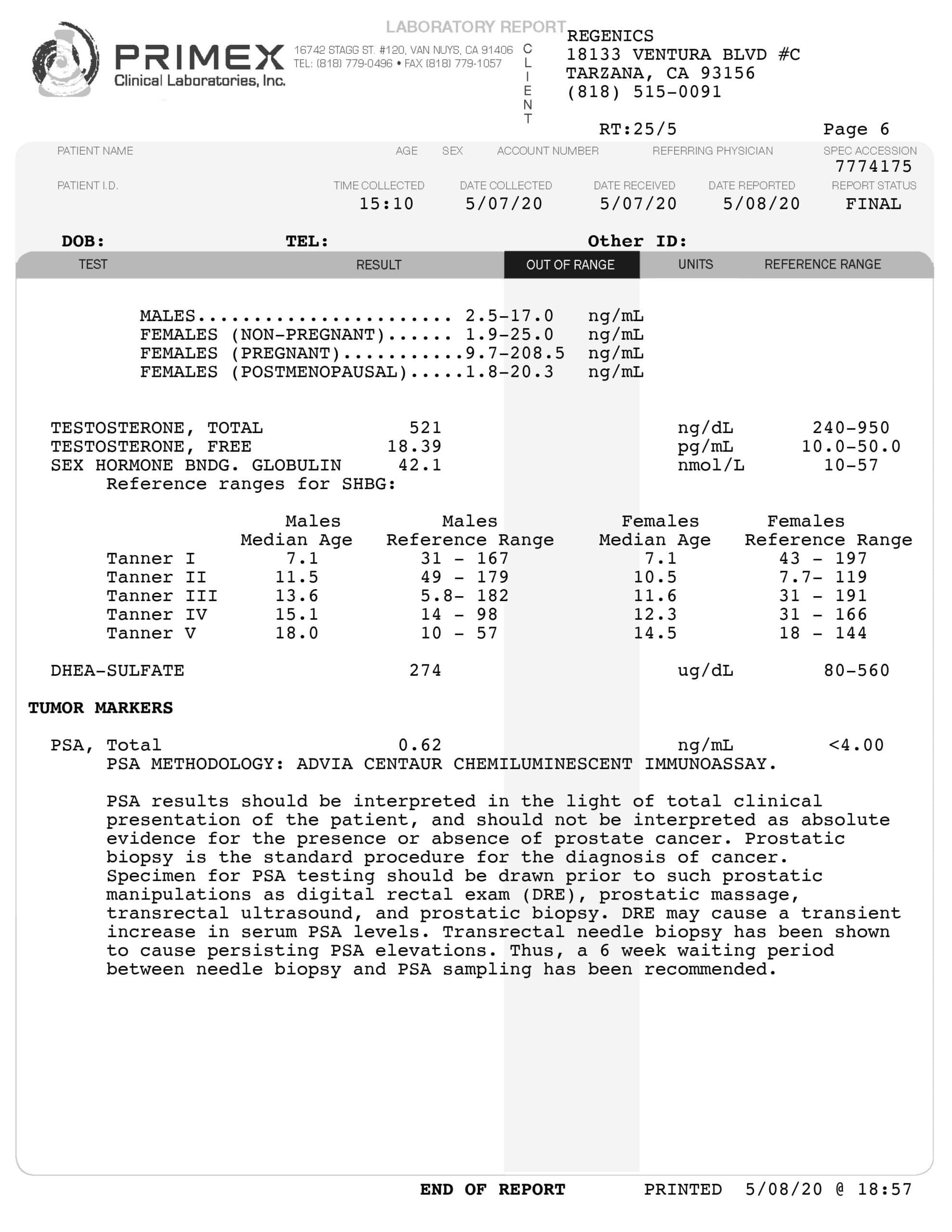BOOK AN APPOINTMENT TODAY
Make your health a priority. We look forward to meeting you.

COMPREHENSIVE BLOOD PANEL
A comprehensive blood panel gives you a more complete picture of your overall health. By evaluating all of the results together you can spot possible early signs of diseases or conditions and notice trends going in the wrong direction. For example, you can identify too low or too high hormone levels and monitor how medications you are taking may affect liver and kidney function.
The first step is to get your comprehensive blood panel done – to check your baseline. The Comprehensive Blood Panel will give us a detailed 6-page report that will check your Total Blood Count, Testosterone, Estradiol and other Hormone levels, Vitamins, Liver and Kidney function, PSA (Prostate), Thyroid, Inflammatory Markers and other parameters we need to know to help direct your care.
Getting tested at routine intervals can allow you to see the way your body changes over time and empower you to make informed decisions about your health.
How often should I get my baseline bloodwork done?
Your doctor will typically recommend that you get routine blood work at least once a year, around the same time as your yearly physical.
But, this is the bare minimum. There are several major reasons you may want to get blood tests more often than that:
- You’re experiencing unusual, persistent symptoms. These could include anything from fatigue to abnormal weight gain to new pain.
- You want to optimize your health. Knowing levels of various blood components, such as HDL and LDL cholesterol, can allow you to tweak your diet or fitness plan to minimize unhealthy habits (that you may not even realize are unhealthy). This can also maximize the nutrients you put in your body and more.
- You want to reduce your risk of disease or complications. Regular blood tests can catch the warning signs of almost any disease early. Many heart, lung, and kidney conditions can be diagnosed using blood tests.
Do I need to fast before my blood test?
Yes. Please fast for at least 8 hours prior to your blood test. Fasting before the blood tests is important to help make sure that your test results are accurate. The vitamins, minerals, fats, carbohydrates, and proteins that make up all food and beverages can impact blood-level readings, clouding the results of your test.
Tip: Schedule your test as early in the day as possible. The hours you spend sleeping are considered part of the fasting period, as long as you don’t break your fast with coffee or food once you’re awake.
Can I drink coffee before my test?
Even if you drink it black, coffee can interfere with blood test results. That’s because it contains caffeine and soluble plant matter, which might skew your test results.
Coffee is also a diuretic, which means that it will increase how much you pee. This can have a dehydrating effect. The less hydrated you are, the harder it can be for the nurse or other medical professional who’s doing your blood test to find a vein. This can make the blood test harder or more stressful for you.
What about water?
It’s fine to drink water before a blood test, unless you’re instructed otherwise by your doctor. This is different from some surgical procedures, which may require you to have a totally empty stomach.
Tap or bottled water are both OK, but leave the squeeze of lemon for another time. Seltzer and club soda are off-limits. Carbonated beverages, flavored or otherwise, shouldn’t be consumed during a fast, and neither should any type of tea.
Water hydrates your body and makes your veins plumper and more visible. Stay hydrated in the two days before your test. Also try drinking several glasses of water right before the blood draw to make it easier for the nurse or other medical professional to find a vein.
REGENICS' COMPREHENSIVE BLOOD PANEL INCLUDES:
The Blood Chemistry panel gives us important information about the various chemicals in the blood that travel with your red and white blood cells. This includes proteins and enzymes from the liver, waste products from metabolism, and sugar in the blood. At a comprehensive blood panel test, we take a look at the balance of electrolytes such as sodium, potassium, and chloride. These elements are essential in cell communication.
- Albumin
- Globulin
- AST/ALT
- Alkaline Phosphatase
- Bilirubin
- Glucose
- Calcium
- Chloride
- CO2
- Sodium
- Potassium
- BUN
- Creatinine
- e.GFR
The Cardiac Risk Studies panel gives us important information about the various factors that determine your risk for cardiovascular disease. This includes checking you “good” and “bad” cholesterol, triglycerides, and C-Reactive Protein, giving us an overall picture of your heart health.
- Cholesterol- the total cholesterol in milligrams per deciliter of blood
- HDL Cholesterol- High Density Lipoprotein, also referred to as “good cholesterol”
- LDL Cholesterol- Low Density Lipoprotein, also referred to as “bad cholesterol”
- VLDL- Very Low Density Lipoprotein, another “bad” cholesterol
- Triglycerides
- CRP- C Reactive Protein gives an indication of the overall inflammation in the body
The Thyroid Studies panel gives us information about the thyroid and its associated hormones. For example, if your body is producing too much or too little thyroid hormones, you may have hypo- or hyper-thyroid. Consequently, either condition can negatively impact metabolism, energy, and weight.
- TSH – Thyroid Stimulating Hormone
- T3
- T4
The Anemia Profile panel will tell us whether you are anemic, meaning the blood lacks adequate healthy red blood cells, which impacts the ability to carry oxygen.
- Ferritin
- Vitamin B-12
The Complete Blood Count panel looks specifically at the red and white blood cells that are in the blood fluid. This helps in determining if you are anemic or if the immune system is fighting infection, among other conditions.
- WBC- White Blood Cells
- RBC- Red Blood Cells
- HGB- Hemoglobin
- HCT- Hematocrit
- MCV- Mean Corpuscular Volume
- MCH- Mean Corpuscular Hemoglobin
- MCHC- Mean Corpuscular Hematocrit
- RDW- Red Cell Distribution Width
- Platelets
- MPV- Mean Platelet Volume
- Neutrophils %
- Lymphocytes %
- Monocytes %
- Eosinophils %
- Basophils %
The Special Chemistry panel allows us to assess your risk for diabetes as well as estimating the body’s level of growth hormone production. If your results are not within the expected ranges, we can make dietary and lifestyle recommendations and refer to your primary care provider for further evaluation and treatment.
- HGA1C- Hemoglobin A1C gives us an estimate of your average blood sugar over a 3-month period, which allows us to then predict risk for diabetes
- IGF-1- Insulin-like Growth Factor is a protein produced in the liver that is stimulated by growth hormone
The Vitamin panel will assess your level of Vitamin D and determine the need for supplementation. Vitamin D is a critical nutrient for the immune system, bone health, and cardiovascular system. Therefore, keeping your level within a healthy range is important.
- Vitamin D, 25-Hydroxy- measures the amount of vitamin D in the blood
The Hormone Studies panel will measure the levels of various hormones and will give us valuable information on areas that can benefit from improvement through Hormone Optimization Therapy. If your results are not within the expected ranges, we can develop a plan of replacement and optimization therapy.
- FSH- Follicle Stimulating Hormone
- LH- Luteinizing Hormone
- Estradiol
- Prolactin
- Testosterone (total)
- Testosterone (free)
- Sex Hormone Binding Globulin- a protein that binds to free testosterone and inactivates it
- DHEA-Sulfate
The Tumor Marker panel will specifically assess the health of the prostate. If your results are not within the expected range, we can refer to your primary care provider for further evaluation and treatment.
- PSA- Prostate Specific Antigen, which may increase with infection, inflammation, or growth of the prostate
One-on-one consult with our providers
Our providers’ goal is to ensure you understand all of your results and what they mean. We want you to leave knowing where you stand and which places you could use some improvement. Each step gets you closer to functioning better and living healthier.
